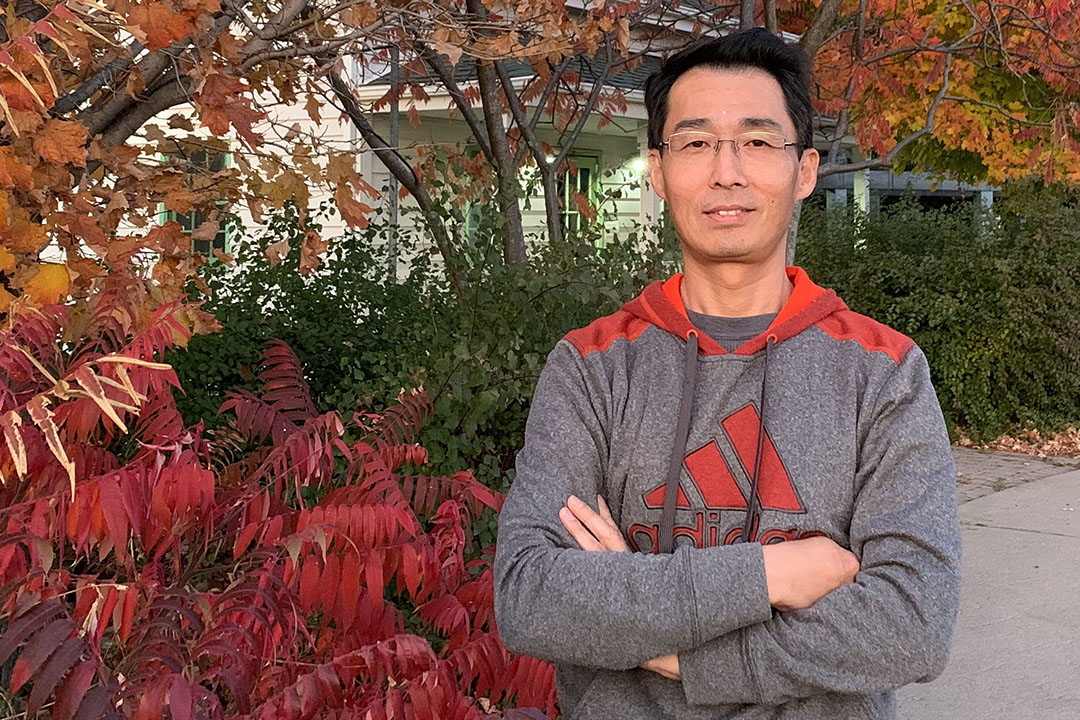
Xiao’s disease prevention research focused on fats
A new University of Saskatchewan (USask) College of Medicine faculty member is aiming to build basic science research that could lead to advancements in treating heart disease, stroke, obesity and diabetes.
By Kristen McEwenListen to all episodes of Researchers Under the Scope podcast.
Subscribe to the podcast on Spotify or Apple Podcasts.
As an assistant professor in the Department of Anatomy, Physiology and Pharmacology (APP), Dr. Changting Xiao (PhD) has dedicated his research to investigating how the body processes sugar and fats, or lipids.
“My research is to look more closely into how fats are handled by the body, to understand the general physiology, to find out what is wrong in disease conditions, and to develop potential strategies to mitigate that,” Xiao said.
People with diabetes do not only have high levels of blood sugar, but also often have blood lipid problems. Blood lipid problems also occur in many people who are obese or overweight, and to those with metabolic syndrome. As a result, these individuals also have an increased risk of micro- and macro-vascular diseases, such as atherosclerosis, heart attack and stroke.
According to Statistics Canada, 63 per cent of adults were classified as overweight or obese as of 2018. Treating these diseases comes at heavy a cost to the health-care system, Xiao said. As of 2019, diabetes treatment alone cost nearly $30 billion nationally per year.
Xiao is specifically focusing on cells in the gut—the gastrointestinal system—by using animal models to better understand how gut cells process fats. He intends to identify critical molecules involved in the process. Fats are sent out by the gut as lipid particles and are distributed to various organs in the body (like the heart, kidneys and liver) that contribute to cardiovascular disease.
“We could target these molecules to slow down the process or change the direction of the process, so that not as many bad lipid particles are made in the gut,” he said. “Fats in the gut cells could be used for something else, like to be burned for energy, instead of being sent to other parts of the body.”
Xiao has been interested in the metabolic processes in the body for the entirety of his career. He specializes in physiology, metabolism and nutrition. Prior to arriving at USask, Xiao held post-doctoral fellowships from the Canadian Diabetes Association and the Banting and Best Diabetes Centre, before becoming a research associate and a senior scientific associate at the University of Toronto and the University Health Network.
Working at one of the best centres in the world for diabetes research, Xiao took the opportunity to understand how diabetes occurs and how complications arise from the disease.
He accepted the USask position of assistant professor in APP in the fall of 2020.
While moving to a new province is challenging at the best of times, Xiao found the transition from Ontario to Saskatchewan to be welcoming, despite the pandemic. Although the USask campus is currently closed to most in-person learning, Xiao said he looked forward to moving to a university setting.
“I like the energy on campus and enjoy interacting with students in the lab and in classroom,” he said. “Mentoring the next generation of scientists and researchers is rewarding.”
“I think USask values research excellence a lot and provides a very strong and supportive environment—from the facilities to the supportive programs to the leaderships at the College of Medicine and the Department of Anatomy, Physiology and Pharmacology.”
